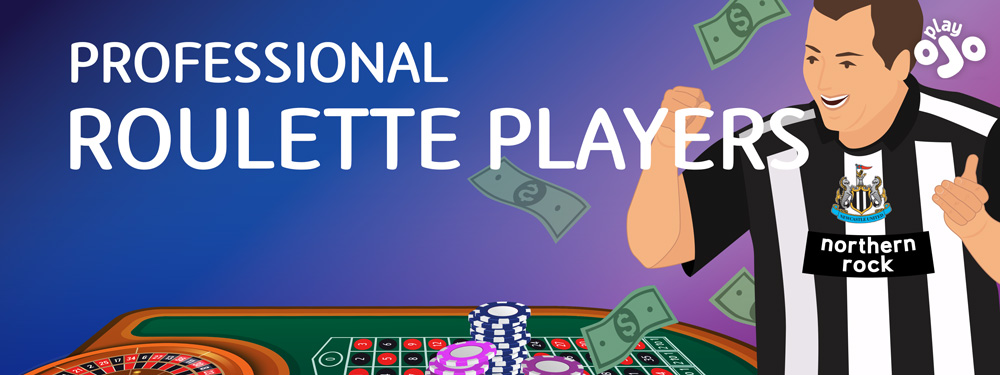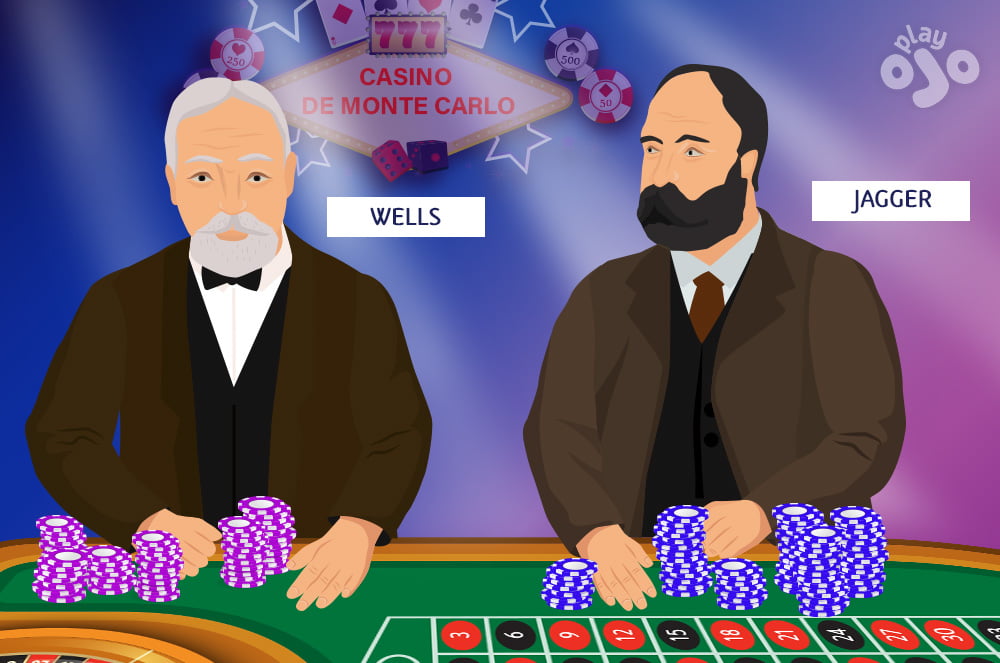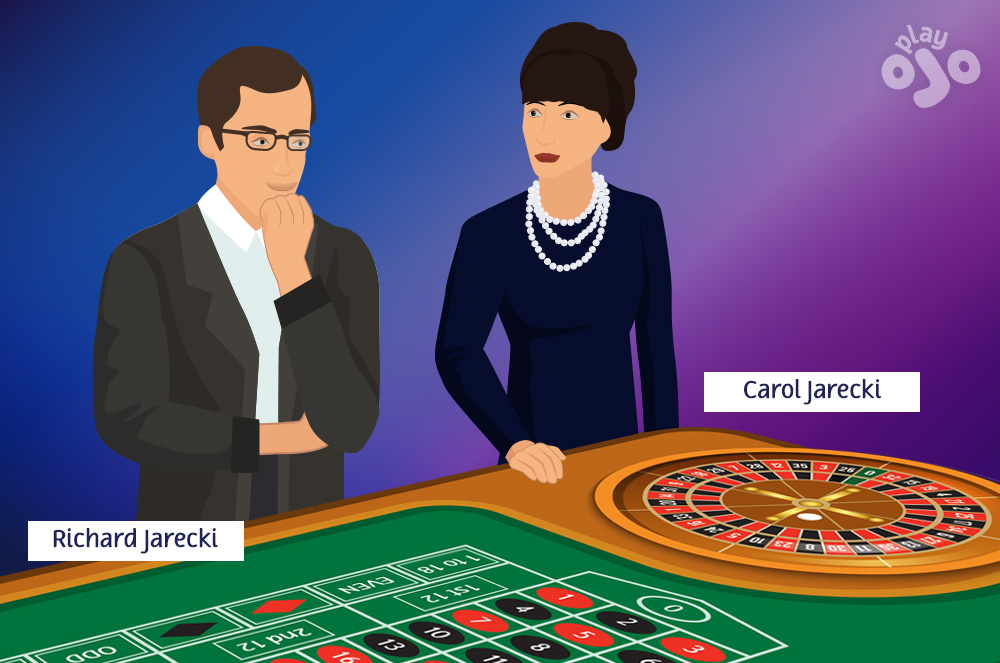Becoming a Professional Roulette Player
By Daniel Grant
Updated 26 Nov, 2025

Is there really such a thing as a professional roulette player, and what’s it like to be one? Can you make a living playing roulette, or are professional roulette players an endangered species like card counters?
You’re about to meet the most famous professional roulette players, hear how they made their millions and discover what it takes to become one yourself.
All of the information on becoming a professional roulette player that I’m about to share is the product of years of research and playing experience in roulette, as well as discussions with professional gamblers. I am not a roulette pro and would not recommend it! You’ll find out why in a moment, but first let’s meet the early pioneers who took on the wheel and won…
Meet the legends of roulette
Before we discover if it’s even possible to make a living out of beating the wheel these days (clue: it’s not!), let’s meet the mythical roulette kings whose epic wins are the stuff of gaming folklore.
If you want to learn even more about their highs and lows, and read about others who made roulette history, check out our rundown of most famous roulette winners.

Joseph Jagger
Born in 1830, Jagger was a UK textiles magnate who went broke and borrowed cash from family to take on the casinos of Monte Carlo. We don’t know how we learned to spot biased wheels but legend has it, he exploited these flaws for years, earning millions in today’s money in the process.
He spent his winnings on real estate before dying of diabetes at the age of 62. His colourful life was chronicled in a biography by great-niece Anne Fletcher.
Charles Wells
Another man who broke the bank at Monte Carlo, Wells was a 19th century con man who probably wasn’t the apple of his lawyer and teacher parents’ eye!
He started his career as an engineer who made his first fortune selling the patent for an invention. He went off the rails after a move to Paris where he set up the first of many Ponzi schemes and made off with the proceeds.
He went to Monte Carlo around the same time as Jagger and he also relieved the casinos of outrageous sums, although no one knows how he did it. Wells lost his money back and was later arrested for his fraudulent schemes, serving 8 years in the clink. Not exactly a roulette hero!
Gonzalo Garcia-Pelayo
This Spanish roulette legend has had a varied career in music, broadcasting and gambling. Known as the father of Andalusian rock, Garcia-Pelayo has also been involved in 13 movies as recently as 2016.
His roulette capers were a family affair, and it’s claimed that by spotting wheel biases, the Garcia-Pelayos won over 250 million pesetas in casinos across the world. Like many gamblers, he took an interest in high-stakes poker as well as the cryptocurrency markets, and remains an active investor today.

Richard & Carol Jarecki
The late 20th century was a golden era for professional roulette players and there’s no shortage of tales of fortunes won and lost. But none are more interesting than the Jareckis, a husband-and-wife team who beat the wheels for over £8 million in today’s money.
Once called “a menace to every casino in Europe”, Richard was a German doctor who applied his scientific mind to the issue of wheel biases. Helped by his wife Carol, the pair tracked and beat wheels all over the world, although they focused on France, Britain and Germany. The pair turned to financial trading later in life when casinos found ways to neutralise their edge, and they lived to their eighties in the Philippines.
Edward O. Thorp
Other players on our list of roulette pros have put in hundreds of hours of hard work looking for biased wheels to exploit. Thorp was more interested in beating every wheel using just the simple laws of physics.
Thorp was an American math professor who became famous with the publication of Beat The Dealer, a book which changed the course of blackjack by explaining how to count cards.
Thorp and his sidekicks were also the pioneers of roulette wheel clocking, and paved the way for other teams of academics such as the Eudaemons. You could say he’s responsible for the many mobile apps which claim to help you beat the wheel using the same mechanics behind clocking.
How do you become a professional roulette player?
A roulette pro’s mission is to make consistent profit by finding situations where they can reverse the house edge and tilt the odds in their favour. Professional gamblers still take risks of course, but they are measured risks that should, on average, produce a return on their investment.
But roulette is pure luck, so how they do they do it? To become a roulette pro, you need to be able to predict the next number more often than random chance. And there are only 2 known ways of doing it:
The Clockers: Using physics against the house
Since the 1960s, people have been using simple, portable computers and the laws of physics to beat the wheel. By inputting variables such as wheel speed, ball speed, deceleration and ball bounce, you can predict approximately where the ball will land. Or so the theory goes.
These days you can download apps which promise the chance to clock wheels and give you profitable results in advance, but they certainly won’t be using the same complex mathematics that Thorp did, and more often than not, the croupier will ask you to put your phone away.

The Trackers: Finding biased wheels
For roulette pros, wheel bias is where the real money can be made, and the history of roulette is littered with stories of wheel biases being exploited for millions. A wheel bias is a situation where a defect prevents a wheel from being fully random, and therefore certain numbers appear more often than they should.
In the early years, manufacturing processes where not as precise, and casinos failed to track game outcomes as diligently as they do now. After a certain amount of use, a wheel may develop a bias and over thousands of subsequent spins, the favoured numbers could be spotted by advantage players.
What else do you need to make a living playing roulette?
Can you make a living playing roulette? If you have the skills and bankroll then maybe. But that’s not all you need to beat the wheel.
Patience
Advantage players spend a huge amount of time finding suitable tables and analysing results before they put their own money down. They usually only gain a small edge too, so it takes time to reap the rewards.
Stealth
A professional’s roulette strategy includes much more than just finding a scenario to exploit. You also need to stay under the radar or you’ll kill your action.
Zen calm
Even when the odds are in your favour, there will be ups and downs. If you can’t take a streak of losses or step back and see the bigger picture, you won’t last long.
Why you shouldn’t become a professional roulette player
So now you know what a roulette pro does and which trailblazers made their millions. If you don’t have patience, persistence and a good stomach for risk, you’re in the wrong job.
Opportunities are scarce
The opportunities to exploit are drying up. Even in a casino-heavy city like Vegas, you will do well to find a biased wheel. If you’re using microcomputers to clock wheels, security is so tight and wheel countermeasures so effective that you’ll spend more time searching for viable opportunities than actually earning. Even if you find a good spot to exploit, it may not be viable for long.
Long hours
A professional career in roulette will involve long, unsociable hours. First comes a lot of research and possibly learning some technical expertise, then hours and hours of practice. It is lonely work unless you work in a team, in which case you’re reliant on others and the profit will be split.
It’s boring
The play phase itself is likely to be the most boring element in how to win at roulette consistently. Forget any notion of Vegas, tuxedos, martinis and Lamborghinis. You’ll dress to be ignored, place thousands of small bets and watch endless wheel spins. The money will trickle in. Rinse and repeat!.
Uneven income
The roulette systems I’ve outlined above will not produce an instant, significant or even steady profit, and they all come with risks attached. Luck still plays a big part in the outcomes, and you might not get to stay long before the casino moves you on.
Ready to turn pro?
The roulette pro is second only to the slots pro if you’re looking for a hard way to earn an easy living. If you want to become a professional gambler, it’s probably easier to either count cards, or learn how to identify arbitrage or value bets in sports betting.
None of these are easy or reliable ways of making money, and the smart play is simply to find a good roulette guide, make sure you know how to play roulette, make sure you get the best odds and bet for fun.
But if you’re not put off by the hard graft and many risks involved, it’s time to get in the car. You’ve got many miles, casinos and wheel spins ahead of you. Best of luck….
Related Posts

Daniel Grant
About the Author
Dan Grant is a 25-year veteran of the gaming industry and a leading authority on iGaming content with over 1,000 articles on topics such as industry trends and bankroll strategy. He began in sports betting in 1997, then spent 11 years at a leading poker brand. As a content lead for iGaming marketing agencies, Dan has worked with over 30 regulated gaming brands, including giants like IGT. He also has a Law degree, providing a unique perspective on the regulatory complexities of the gaming market.
Availability depends on your country
















We use both automated and manual processes in order to verify the age of the customer registering the account and any player under the age of 18 who registers an account will have their account closed immediately.
We say NO to Underage Gambling . We do not allow players under the age of 18 to gamble. This is stated in our Terms and Conditions.
Trademark ™ 2025 PlayOJO. All rights reserved.
Apple and the Apple logo are trademarks of Apple Inc., registered in the U.S. and other countries. App Store is a service mark of Apple Inc., registered in the U.S. and other countries.
